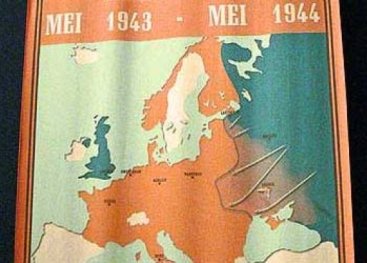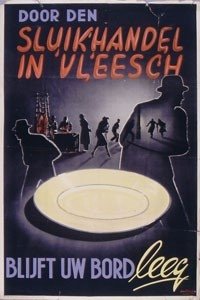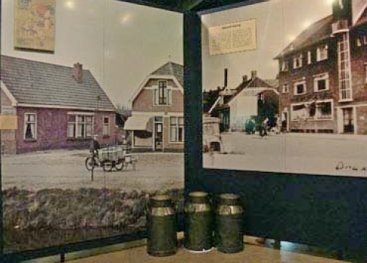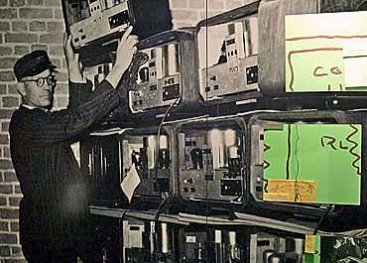
Continue to produce?
German commercial contacts
Overseas trade became impossible after May 1940. Dutch business was dependent on German commercial contacts. The Dutch government had left instructions to refuse to carry out any German commissions intended for military purposes. But when could this be said to be the case?
Industrial production for Germany
Most businessmen were not very scrupulous. After all, they had to provide work for their employees and prevent the management from falling into German hands. In 1941, more than a quarter, and later virtually all industrial production was destined for Germany.
The owner of a company noted:
'At the end of 1940 we received a commission from the Kriegsmarine [War Fleet]. The government hadn't given us any clear instructions, so we decided to give priority to the future existence of the company.'
A worker said:
'As workers we did slow down. But go-slow tactics had to be inconspicuous. The management threatened to send us to Germany to do forced labour if we were found committing sabotage.'
Many people simply continued to work as usual:
'I didn't have any problem working for the Germans. I had to eat, didn't I?'

Metal for weapons
Production declined steadily because the Germans seized so much raw material. They were especially in need of metal for their weapons industry. Church bells were requisitioned; coins were replaced by paper money and the population was required to hand in their metal objects and appliances. Jewellery, bonbon dishes, kettles — everything was suitable. But hardly anything was handed in.
The black market
Illegal trade was thriving and products were sold on the black market at extortionate prices. German propaganda depicted black traders as immoral, clandestine profiteers making their money at the expense of the population. They were made the scapegoat for the increasing shortages.


